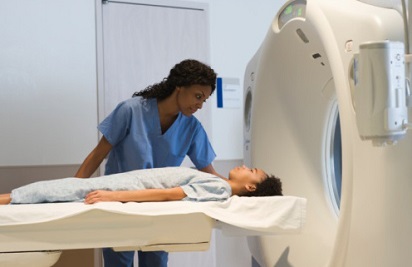BREAKING Medical News! International Study Shows That Young Individuals Who Got CT Scans Have An Increased Risk Of Developing Cancer!
Nikhil Prasad Fact checked by:Thailand Medical News Team Nov 12, 2023 2 years, 1 month, 2 weeks, 22 hours, 3 minutes ago
Medical News: In a groundbreaking revelation, a multinational study conducted by the Barcelona Institute for Global Health (ISGlobal) has unveiled a stark association between young individuals exposed to radiation from CT scans and a heightened risk of developing blood cancers. The study which is covered in this
Medical News report involved multi-hospital and research centers and the study known as EPI-CT, analyzed data from nearly one million individuals across nine European countries, bringing to light the pressing need for stringent radiological protection measures, especially in pediatric populations.
 The Benefits and Concerns of CT Scans
The Benefits and Concerns of CT Scans
Computed tomography (CT) scans have become indispensable in patient management, offering unparalleled diagnostic efficacy, aiding in treatment planning, and facilitating disease follow-up. However, the surge in CT scan usage over recent decades has raised concerns within the medical and scientific communities regarding potential cancer risks associated with ionizing radiation, especially in younger patients.
Dr Elisabeth Cardis, Head of the Radiation Group at ISGlobal and the senior author of the study, emphasizes that while the exposure linked to CT scans is considered low (less than 100 mGy), it still exceeds that of other diagnostic procedures.
Previous studies hinted at an elevated cancer risk in children subjected to CT scans, but methodological limitations hindered conclusive findings.
The Complexity of the Multinational Study
Addressing these limitations head-on, clinicians, epidemiologists, and dosimetrists from Belgium, Denmark, France, Germany, Netherlands, Norway, Spain, Sweden, and the UK collaborated on the EPI-CT study. Extracting data from the radiology records of 276 hospitals and linking them to population-based registries in nine countries proved to be a challenging yet crucial aspect of the study.
The study focused on almost one million individuals who had undergone at least one CT scan before the age of 22. By estimating the radiation dose delivered to the bone marrow, the researchers identified a dose-dependent association between CT scans and the risk of developing both myeloid and lymphoid malignancies.
Alarming Findings
The results revealed a clear correlation between total radiation doses to the bone marrow from CT scans and the increased risk of blood cancers. A dose of 100 mGy was found to triple the risk of developing a blood cancer. Applying these findings to a typical scan today, with an average dose of 8 mGy, suggests a 16% increased risk of developing these malignancies.
Dr Magda Bosch de Basea, the first author of the study, notes that for every 10,000 children undergoing a CT scan, approximately 1-2 cases of cancer can be expected in the 12 years following the examination. These findings underscore the need for ongoing efforts to ensure systematic and accurate collection of doses and technical parameters in clinics for improved risk estimates in the future.
Public Health Implications
With
over one million European children undergoing CT scans annually, the study's findings have significant public health implications. Despite substantial reductions in radiation doses from CT scans in recent years, the study reinforces the importance of creating awareness among the medical community and upholding strict radiation protection measures, especially for the youngest patients.
Dr Cardis emphasizes the necessity of justifying and optimizing CT procedures to minimize doses while maintaining diagnostic image quality. The "As Low As Reasonably Achievable" (ALARA) principle should guide medical practitioners in avoiding unnecessary exposure and maximizing the benefit-to-risk ratio for all CT examinations.
Study Design and Limitations
The EPI-CT study, coordinated by the International Agency for Research on Cancer (IARC), sought to overcome methodological criticisms and limitations of previous studies. The large-scale, multinational approach significantly increased statistical power compared to earlier national studies. The study evaluated the risk of hematological malignancies using the revised World Health Organization (WHO) classification, considering cell lineage and different phases of cell differentiation.
While the study's robust findings provide valuable insights, certain limitations must be acknowledged. Confounding by indication, the influence of socio-economic factors, and uncertainties in individual dose estimates pose challenges. Efforts to validate retrospective dose estimates and ensure prospective collection of dose quantities and technical parameters in real-time clinics are imperative for refining risk estimates in future studies.
Conclusion
In conclusion, the EPI-CT study presents a compelling case for the increased cancer risk associated with CT scans in young individuals. The alarming findings underscore the importance of ongoing efforts to enhance radiation protection measures and justify the use of CT procedures, especially in pediatric populations. The study serves as a clarion call to the medical community, urging them to adhere to the ALARA principle and prioritize the safety of patients, particularly the most vulnerable among them - children.
The study findings were published in the peer reviewed journal: Nature Medicine.
https://www.nature.com/articles/s41591-023-02620-0
For the latest
Medical News, keep on logging to Thailand Medical News.
